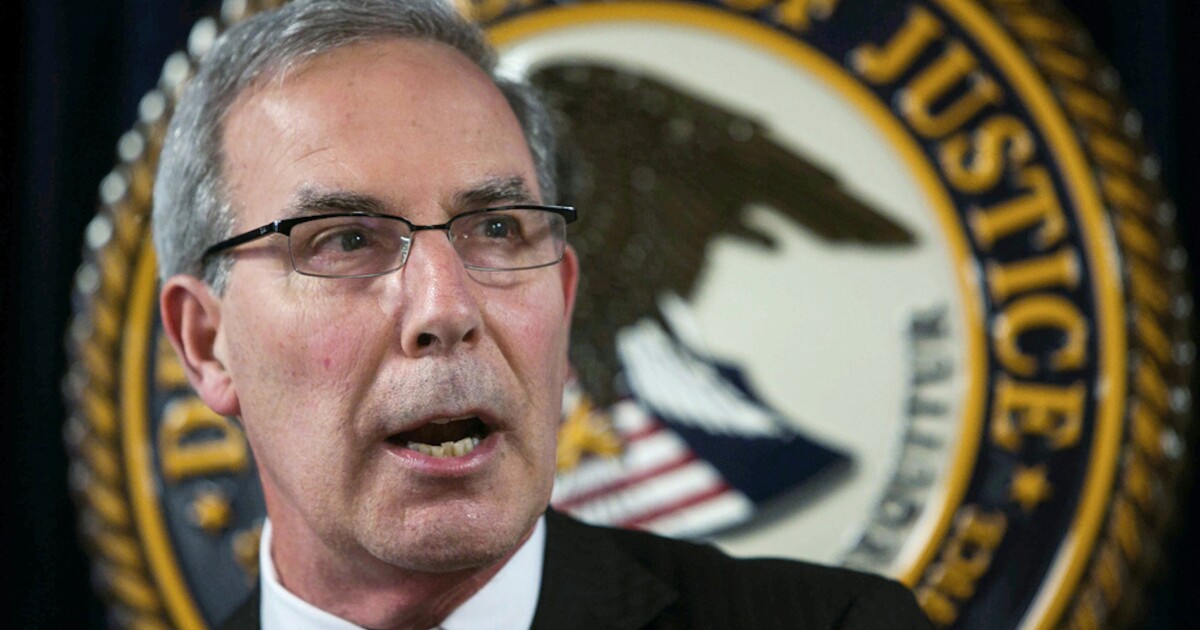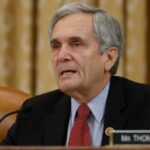

With three weeks until the date U.S. Attorney David Weiss, now a special counsel, might have testified to Congress, the question of whether he’ll appear at all remains open.
But the Justice Department has already blocked other witnesses from complying with congressional subpoenas in House Republican investigations into the Biden family’s business dealings, likely signaling roadblocks ahead for the House inquiry.
LABOR DAYS: BIDEN FACES GOP PRESSURE TO ORDER FEDERAL WORKERS BACK TO THE OFFICE
Negotiations between the House Judiciary Committee and the Justice Department over how and when Weiss will appear before Congress, if at all, are continuing, a person familiar with the talks told the Washington Examiner. The Justice Department has not pulled the plug on a planned appearance by Weiss this fall.
Whether that appearance would involve Weiss delivering testimony at a public hearing or sitting for a transcribed interview behind closed doors is so far unclear. Congressional investigators typically prefer to speak with such witnesses in closed-door settings, where staff experts lead the questioning and the interviews tend to yield more useful information.
HUNTER BIDEN INVESTIGATION: WHAT’S NEXT FOR REPUBLICANS’ BIDEN FAMILY INQUIRIES
Weiss’s status as a special counsel may also give the Justice Department more tools to fight congressional oversight.
A Justice Department spokesperson declined to comment on whether Weiss still intends to testify.
In July, the Justice Department appeared willing to let Weiss, then just the U.S. attorney in Delaware, testify to Congress despite the open nature of Hunter Biden’s criminal investigation.
Just two days before Hunter Biden’s plea deal imploded at a court hearing, the Justice Department offered to make Weiss available for a public hearing before the House Judiciary Committee as soon as Sept. 27.
“While testimony at this early juncture must be appropriately limited to protect the ongoing matter and important confidentiality interests, the Department acknowledges your stated interest in addressing aspects of this matter in the near term,” Assistant Attorney General Carlos Uriarte wrote to GOP committee chairmen on July 24.
Hunter Biden’s disastrous day in court on July 26 set off a chain of events that led to Weiss’s appointment as special counsel and, with it, doubts about any further cooperation between congressional investigators and the Justice Department.
DOJ officials told lawmakers last week that they would not allow two FBI agents who worked on the Hunter Biden investigation to comply with subpoenas for their testimony, citing the criminal proceedings and House Republicans’ push for the two agents to appear at depositions, in which DOJ lawyers could not accompany them.
An IRS whistleblower said the two FBI agents in question attended a meeting in October 2022 at which Weiss admitted that the DOJ had denied his request for special counsel status and that two U.S. attorneys appointed by President Joe Biden had blocked his ability to charge Hunter Biden in the proper jurisdictions.
House Republicans are looking for corroboration of what took place at that meeting, given conflicting answers from Weiss and the DOJ over the past several months about how much authority Weiss actually had prior to his appointment as special counsel.
As negotiations over those and other witnesses continue, the two FBI agents could eventually appear for transcribed interviews, which still carry the penalty of perjury but would allow for the Justice Department to send its lawyers in with the agents.
While DOJ officials have so far refused to make the more than 11 witnesses requested by House Republicans available for interviews, lawmakers are weighing their options for challenging the obstruction.
“The Justice Department is nothing if not predictable,” Jonathan Turley, constitutional law professor at George Washington University, told the Washington Examiner. “The Justice Department can clearly answer some of these questions without jeopardizing any investigation.”
There is recent precedent for FBI agents involved in an ongoing investigation or witnesses in an ongoing investigation appearing before Congress before the criminal proceedings have concluded.
Former FBI agent Peter Stzrok, for example, testified at a public hearing in July 2018 about his role in the Russian collusion investigation, a full eight months before then-special counsel Robert Mueller concluded the inquiry Stzrok had helped open.
The Jan. 6 committee interviewed dozens of witnesses, some of whom went on to face criminal charges in a Georgia election case, while federal and state investigations into the matter were still occurring. In that congressional investigation, the DOJ worked closely with the committee to incorporate some of Congress’s findings into its own criminal investigation.
No such teamwork seems to have occurred in the Hunter Biden matter. In fact, the DOJ has remained silent on whether it was even aware of the evidence of allegedly illegal activity that the House Judiciary, Oversight, and Ways and Means committees have uncovered regarding Hunter Biden’s foreign business dealings.
House Republicans want to talk to Weiss due to allegations of misconduct in his office, including efforts to close down investigative leads that would have broadened the Hunter Biden investigation and evidence of extensive cooperation between the DOJ and Hunter Biden’s defense team, during the five years of the criminal investigation.
The frustration with a lack of answers has pushed Republicans closer to an impeachment inquiry.
CLICK HERE TO READ MORE FROM THE WASHINGTON EXAMINER
“If the House opts for an impeachment inquiry, there could be litigation over some of this evidence,” Turley said.
While critics have said current evidence does not sufficiently implicate Joe Biden, lawmakers have argued that an impeachment inquiry would give them more tools, such as better standing in litigation and more funding for investigators, to overcome the Biden administration’s stonewalling.






